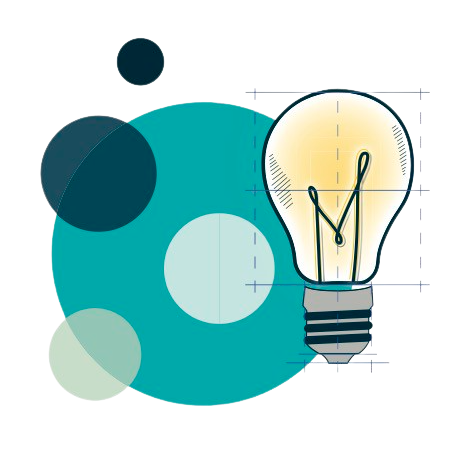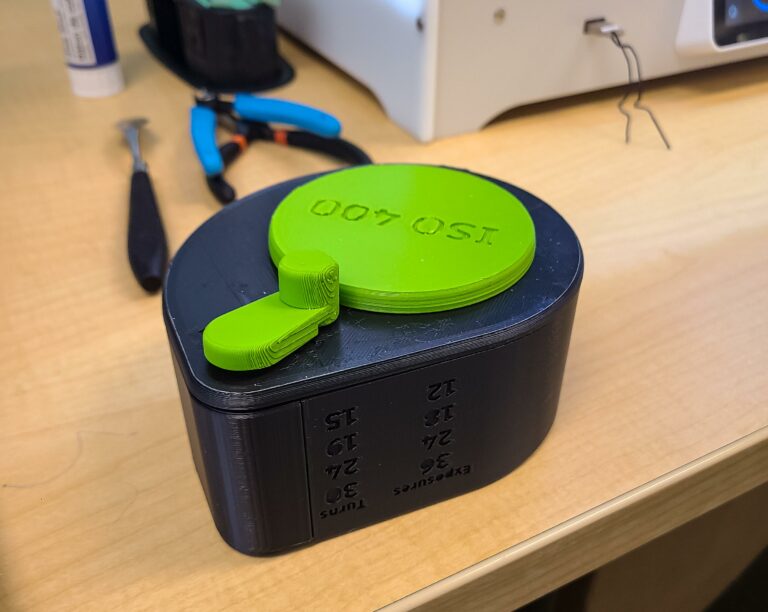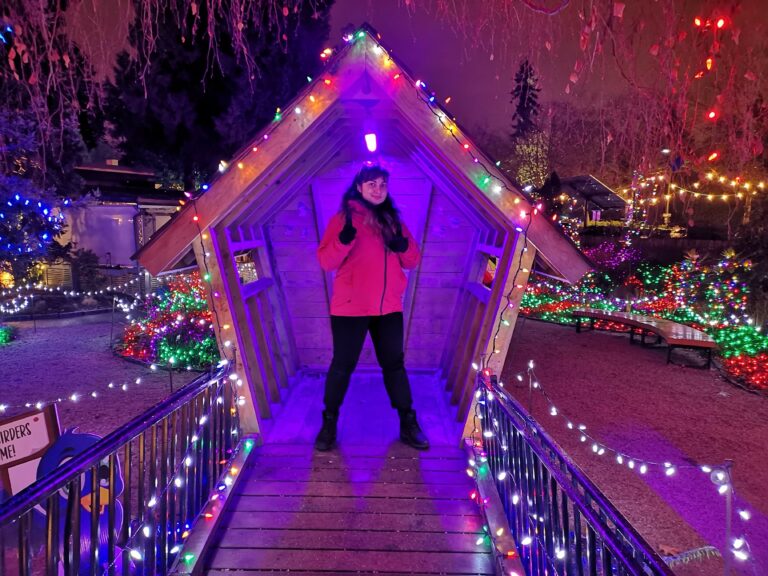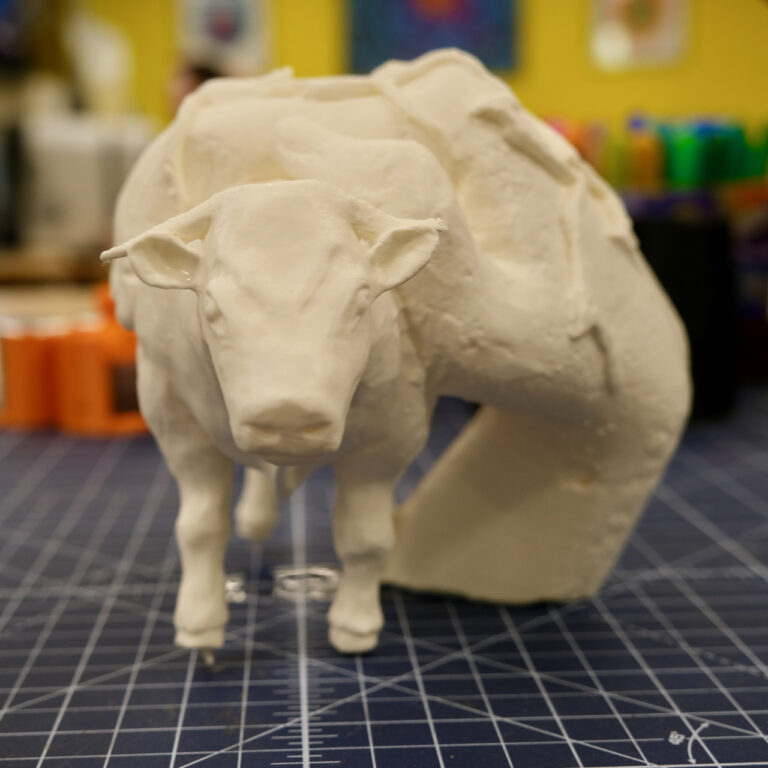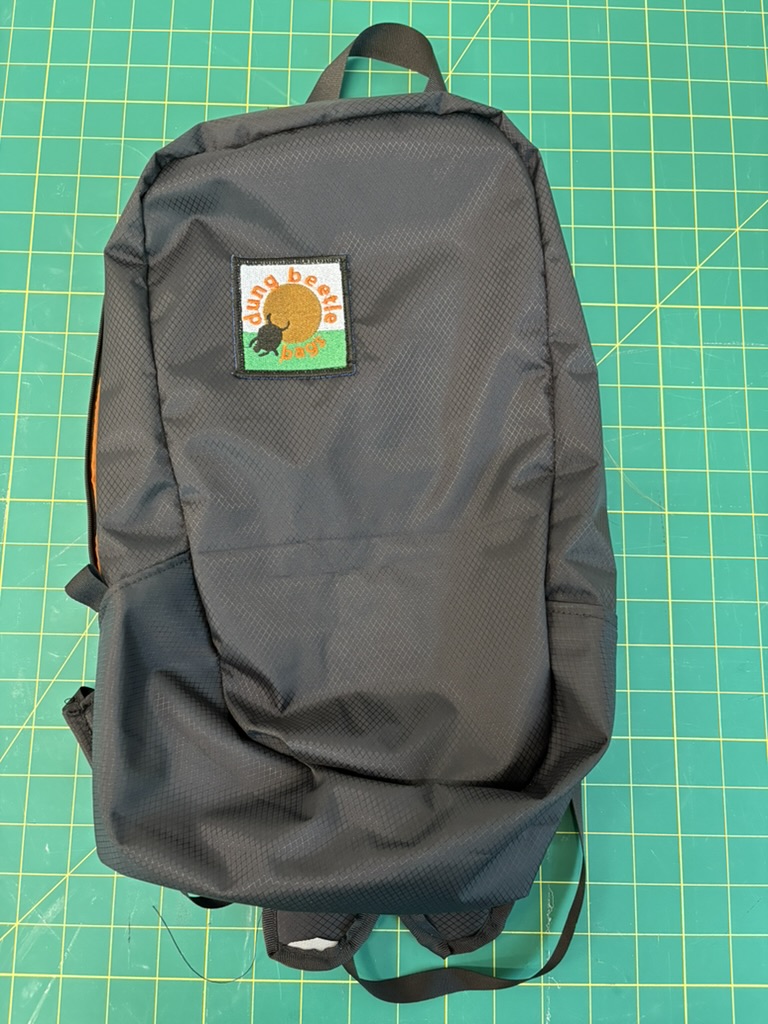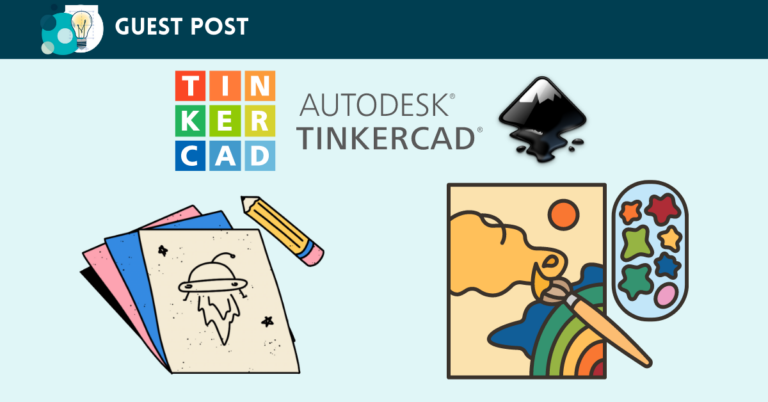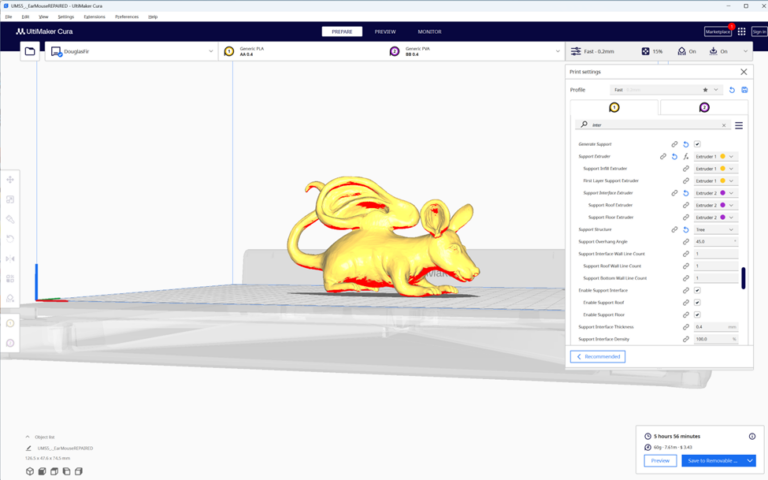The Makerspace Faculty Grant – Supporting learning through making
Written by Kirsten Glass
Awarded for the first time in October of 2022, the Makerspace Faculty Grants are already pushing forward development of new classroom maker experiences, shaking up and enhancing what instructional approaches look like at TRU.
The Grant
The Centre for Excellence in Teaching and Learning (CELT) Makerspace Faculty Grant was initiated and developed through collaboration between Diane P. Janes, Coordinator of Learning and Faculty Development at CELT, and Franklin Sayre, the TRU Library’s Makerspace Librarian. This grant aims to encourage and support faculty in adopting or experimenting with new and dynamic classroom approaches.
One of the grant program’s goals is to support the idea of integrating making within traditional classroom experiences. When discussing the motivation for the grant Sayre said “It’s really exciting when we see faculty expertise and student creativity come together in the Makerspace, but we also know that it can be hard for faculty to find the time and resources to learn new technologies and modify their assignments. The grant is meant to support faculty integrating making and the Makerspace into their classes by providing funding and mentorship”.
Both CELT and Makerspace hoped that the grant would support faculty wanting to explore hands-on learning, user choice, and autonomy within their teaching, and student projects. These values are outlined in the grant itself and align with the pedagogical and logistical framework of Makerspace. Applicants are also asked to integrate students as partners into their grant in roles such as co-designers, co-researchers, student project managers, or as research assistants.
Overall, a tall order, these requirements are meant to mark a shift in what classroom learning could look like in a future where traditional class styles, and new experiences both blossom. However, Janes knows that TRU Faculty are up for the challenge, saying of the current recipients “I have been very impressed with the two inaugural grants that were submitted to our call for proposals in 2022. They embraced the student-centered, Makerspace-centered pedagogy that we had envisioned for this grant. I am excited to see the results of the work of these two TRU scholars as they bring their proposal ideas into reality”.
As the grant aims, the program is already supporting diverse types of making in the classrooms of the first two recipients. Looking to future applicants Janes says she’s excited to discover what other innovative pedagogical ideas faculty recipients have for the Makerspace and for their learners. Hopefully, these ideas lead to a future where traditional class styles and new experiences provide variety in learning and well-rounded learning experiences.
If you are faculty hoping to apply to the CELT Makerspace Faculty Grant, applications for the next round of grants are open and due by March 3, 2023, at 6:00 p.m. See more information below.
Fall 2022 Recipients
Unmade Monuments
One of the first to receive the Makerspace Faculty Grants, Unmade Monuments is the brainchild of Twyla Exner an Assistant Teaching Professor with the Department of Communication and Visual Arts. In her project, Professor Exner asks students to create handmade plasticine sculptures representative of something (or someone) they feel deserves to be represented within public space as a monument.
Makerspace comes into play once the prototype is made, with students coming in and 3D scanning their creations. The 3D scanner allows students to turn their sculpture into a digital object. Their digital object is then refined and modified before being added into a landscape or physical space background photograph. This brings to (digital) life their public monument, providing the context of where students imagine their sculpture.
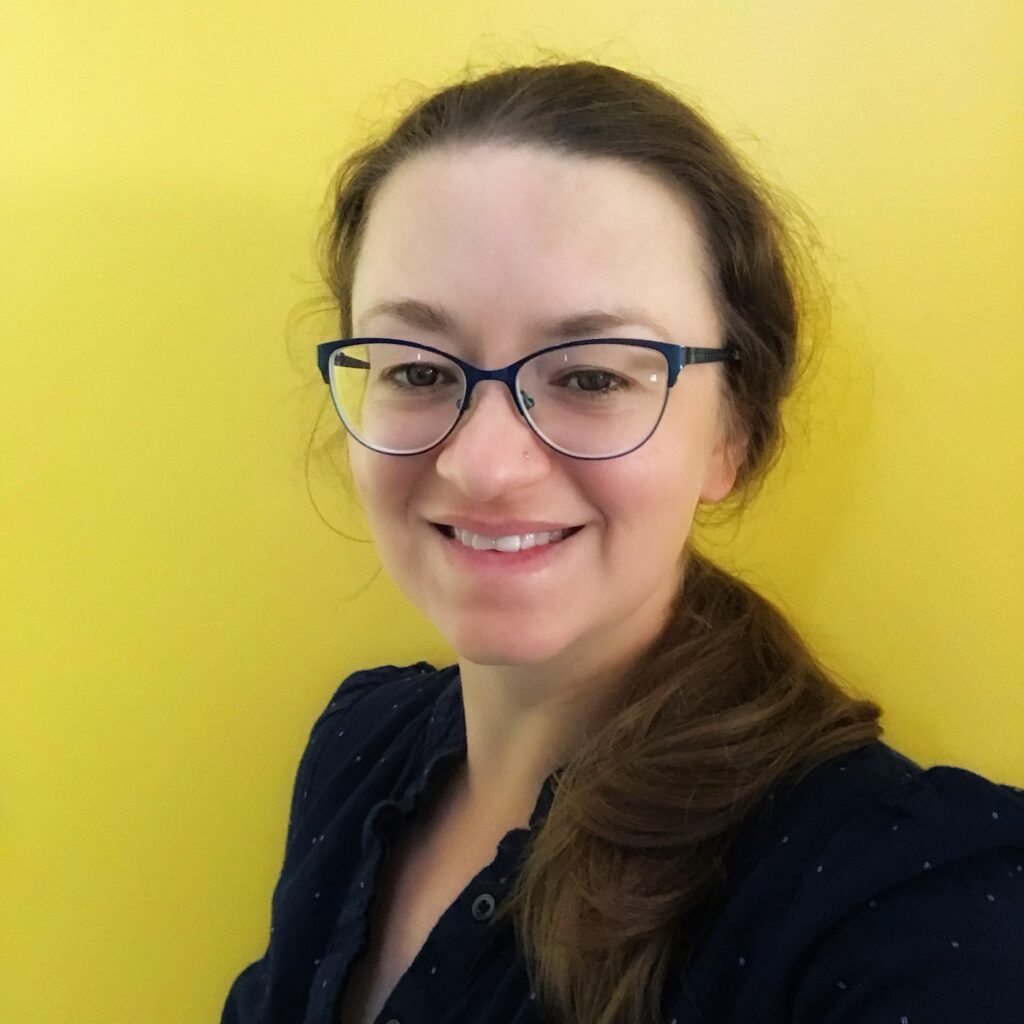
Professor Exner says that without access to the equipment, or the empowering attitude that emanates from Makerspace this project just wouldn’t be possible. “While the impact of this assignment is intended for students, it has a great possibility to have a ripple effect on those who view the student exhibition and interact with the students in Makerspace. I really feel it’s a project that compliments the “WHAT IF?!” exploratory spirit of learning championed within Makerspace.”
When asked about her hopes for the project Professor Exner said “My greatest hope is that it challenges the way in which the students see, experience, and imagine public space. Unmade Monuments is an innovative real-world application of technologies, working between the analog and digital realms, transforming student ideas into visual and physical realities.”
Nurturing Community Disaster Resilience Futures through “Making”
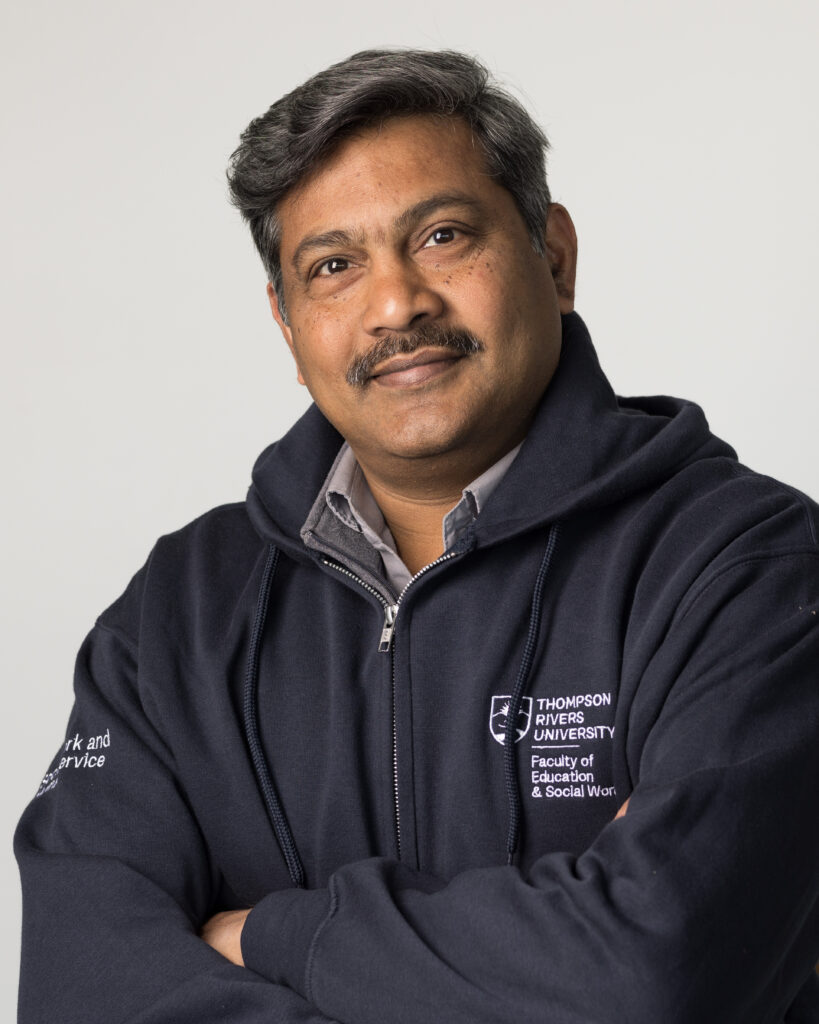
Making waves with his Faculty Makerspace Grant is Dr. Bala Nikku who wants to use concepts like digital literacy and maker literacy to highlight the complex relationships between individuals, technologies, and the many contexts in which they are used. The project plans include evaluating and shifting the way stories and interviews are created with disaster-affected or displaced individuals.
In this project, he brings together three unique contexts: international social work, digital literacy, and maker citizenship to provide experiential learning into disaster social work and future community resilience. This change in the storytelling of disaster narratives allows for an understanding of the impacts of disasters and provides experiences for social workers to gain knowledge in a new unique way.
The long-term hope, Dr. Nikku says, is that the insights that he learns from this project will help with revising curriculum content and further integrate design thinking into social work courses that he teaches, namely International Social Work. Already thinking of further applications Dr. Nikku adds “I am also working on special topics course – Green Social Work in which I plan to integrate Makerspaces Literacies leading to the application of design thinking in social work practice to address especially climate change and disasters”.
After the project concludes Dr. Nikku plans to use this grant as a ‘proof of concept’ for other applications and curriculum changes both within and outside of the Makerspace. To achieve these curricula change goals he says that TRU Library Makerspace offers critical learning space, support, and collaboration.
More About CELT
CELT (Centre for Excellence in Teaching and Learning) promotes engaged teaching practices for all TRU faculty members, as well as collaborating with faculties across TRU to support the development of engaging pedagogies through innovative professional development, personalized consulting, and supportive educational leadership. CELT programs and grants are designed to facilitate a teaching culture that improves student learning, successful transitions, and learner retention.
CELT is located on the 2nd Floor in Brown’s House of Learning on the TRU Kamloops Campus. Any faculty member who has an interest in this or other CELT grants can reach out to CELT coordinators to talk about the grants and get help in designing a project or creating a proposal. Once you have your grant, they also offer assistance post-award if you need help meeting grant requirements.
